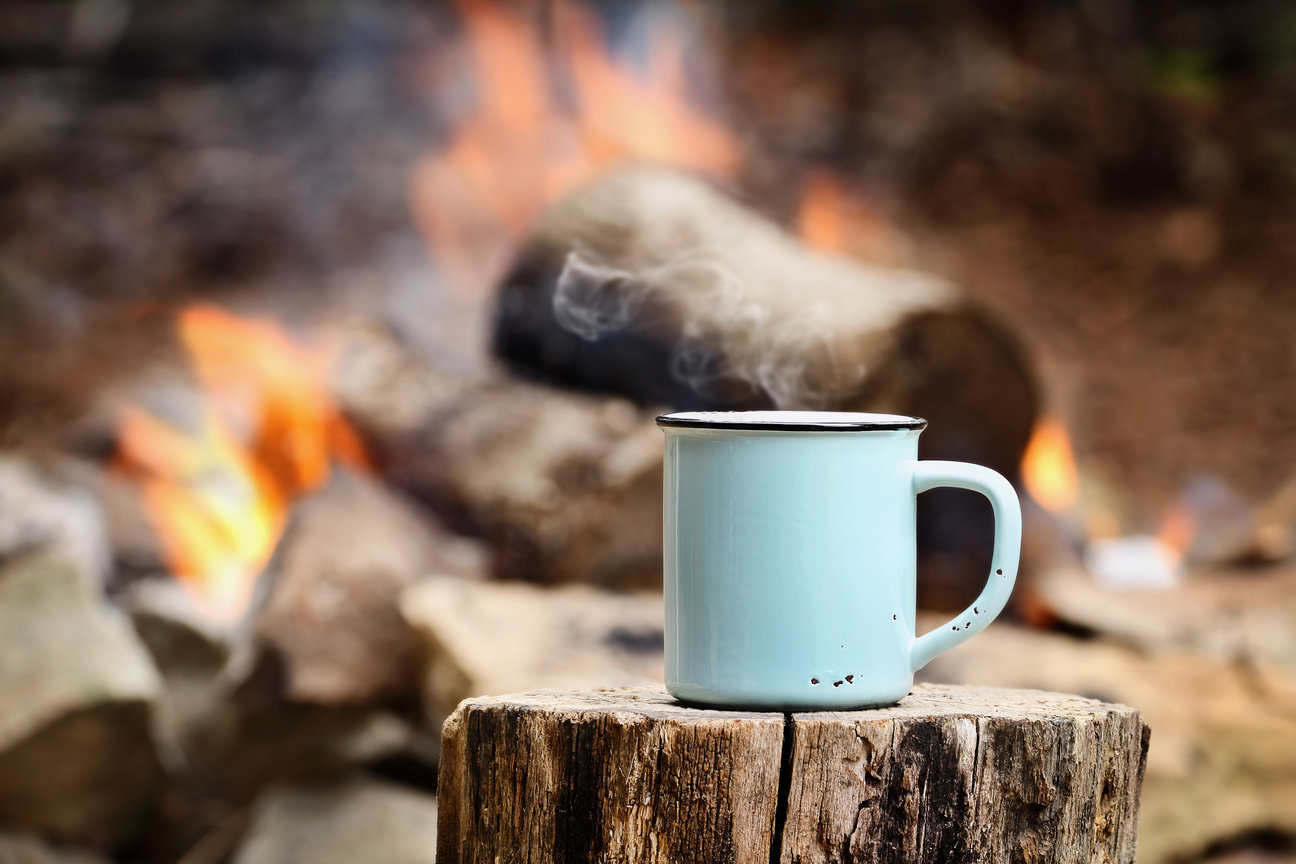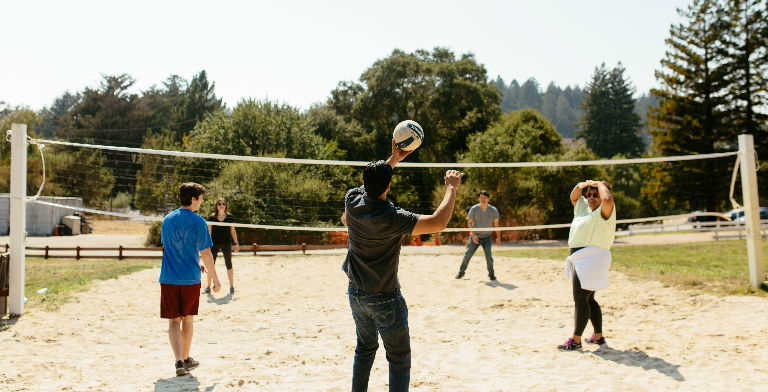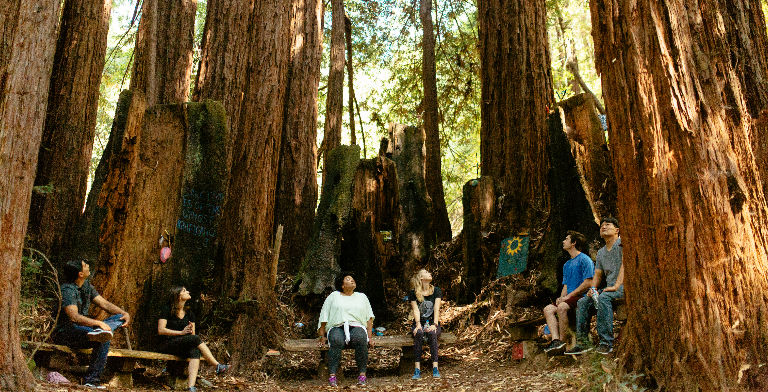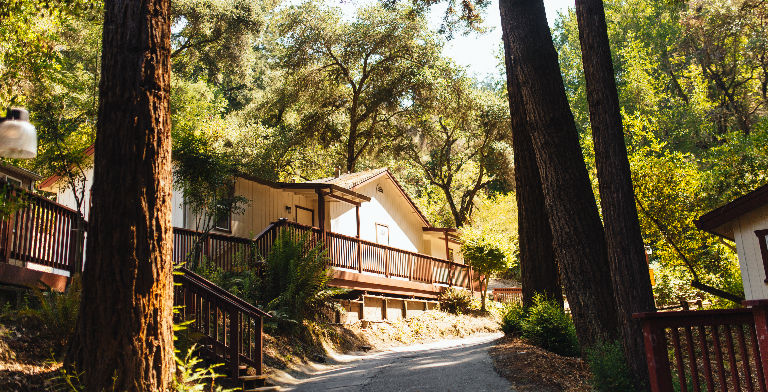A typical day at The Camp is highly structured and packed with recovery-related activities and programming.
Weekdays
A typical day begins at 7 a.m. and is filled with individual and group counseling, 12-Step meetings, videos and lectures. There are also blocks of time each day set aside for physical activity, meals, phone calls and free time. Curfew is at 10 p.m.
Weekends
On weekends, patients have the opportunity to watch movies and socialize. During personal time, many patients choose to meditate, exercise, play sports outdoors and relax.
Patients also participate in counseling and other recovery-related activities.
Therapy Groups
- Community Group
Patients have an opportunity to share a positive thought for the day, address issues with their peers, or give and receive support. - CBT – Cognitive Behavioral Therapy
Cognitive behavioral therapy (CBT) is a form of treatment that focuses on examining the relationships between thoughts, feelings and behaviors. By exploring patterns of thinking that lead to self-destructive actions and the beliefs that direct these thoughts, people with addictions can modify their patterns of thinking to improve coping. CBT has proven to be one of the most effective therapies for treating substance abuse. - Gender Group
Research shows that men and women experience addiction differently and have distinct reasons for turning to drugs and alcohol in the first place. Given these differences, men and women often feel more comfortable sharing personal information in gender-specific groups. These groups address communication skills, setting boundaries and healthy relationships, as well as specific men’s and women’s issues. - Process Group
Small groups of six to 10 patients meet with their case manager to discuss their emotions, triggers, challenges and successes as they work through their recovery program. In this intimate setting, patients receive personalized attention and feedback from others who are struggling with similar issues. - Detox Group
Detox can be a challenging process. This group is designed to offer support and encouragement for individuals going through the process of withdrawal. We want our patients to realize that any anxiousness or discomfort they feel is normal, and that this stage is a temporary part of much longer and much more rewarding recovery process. One of the goals of this group is to ensure that patients stay in drug rehab and make a smooth transition into the next phase of treatment. - Didactic Group
Patients attend educational lectures about addiction and a variety of recovery-related topics. - Relapse Prevention
This group is designed to help patients avoid relapse by learning to recognize their “triggers” for use and cope with the feelings associated with them. Our approach is based on the work of Terence Gorski, one of the nation’s leading authorities on relapse prevention. With an action plan in place, our clients have the best possible chance of maintaining their sobriety.
Activities
- Sober Stage
Patients work together to perform sober skits, play instruments and put on acts about recovery.
Meetings
- ABC – Attitude, Behavior, Commitment
Speakers from The Camp’s alumni group talk with current patients about their recovery experience, with an emphasis on how their attitudes, behaviors and level of commitment can enhance or impede the process. - H&I – Hospitalizations and Institutions
Alcoholics Anonymous, Narcotics Anonymous and similar groups coordinate meetings each week and invite speakers from the community to share their stories of recovery, hope and inspiration. - Looking Glass
An opportunity for patients to share their life story and drug history with other residents in a supportive environment, this group helps patients come to terms with their past and move toward a better future.
















